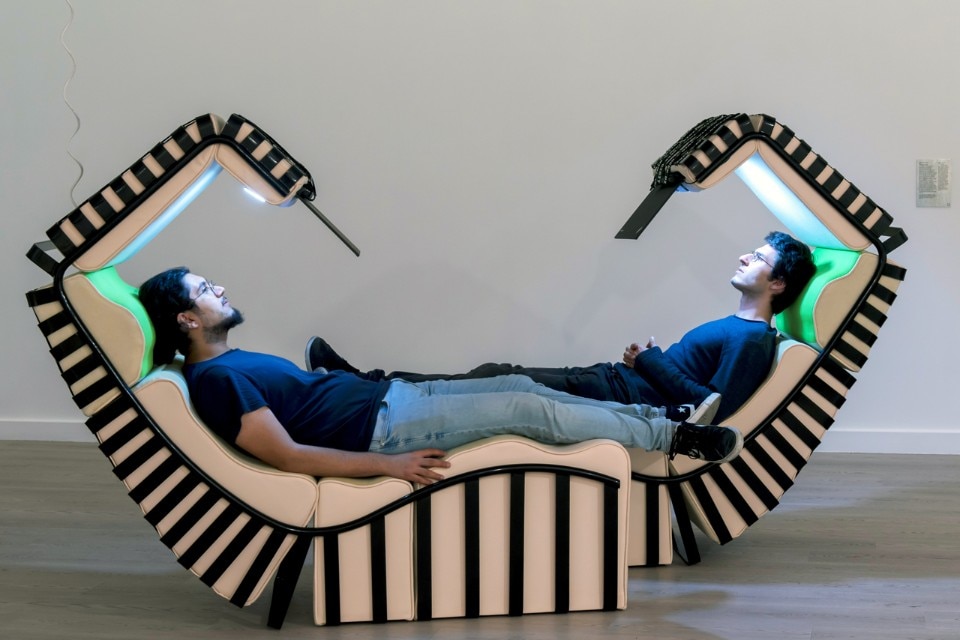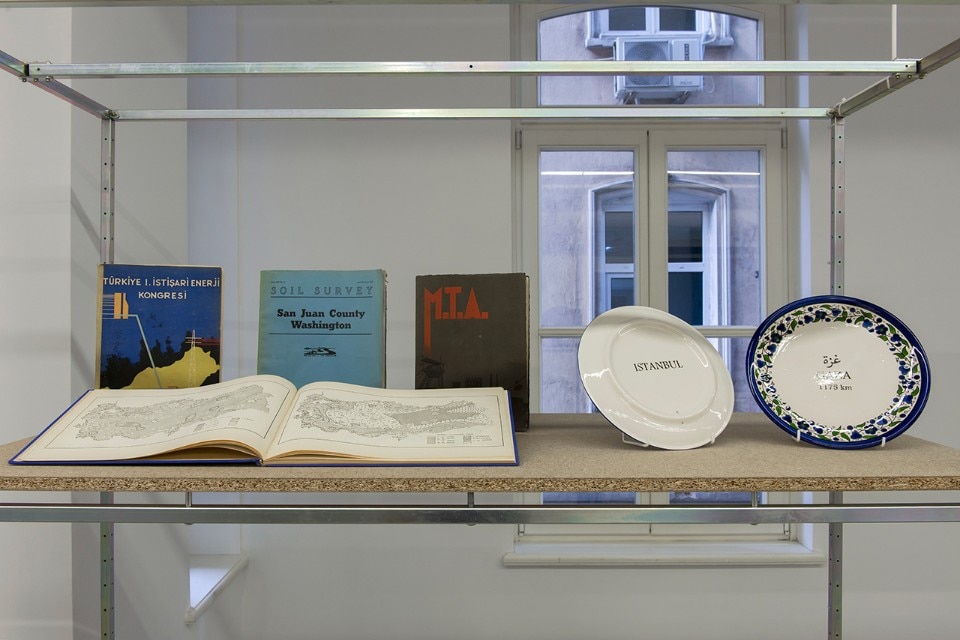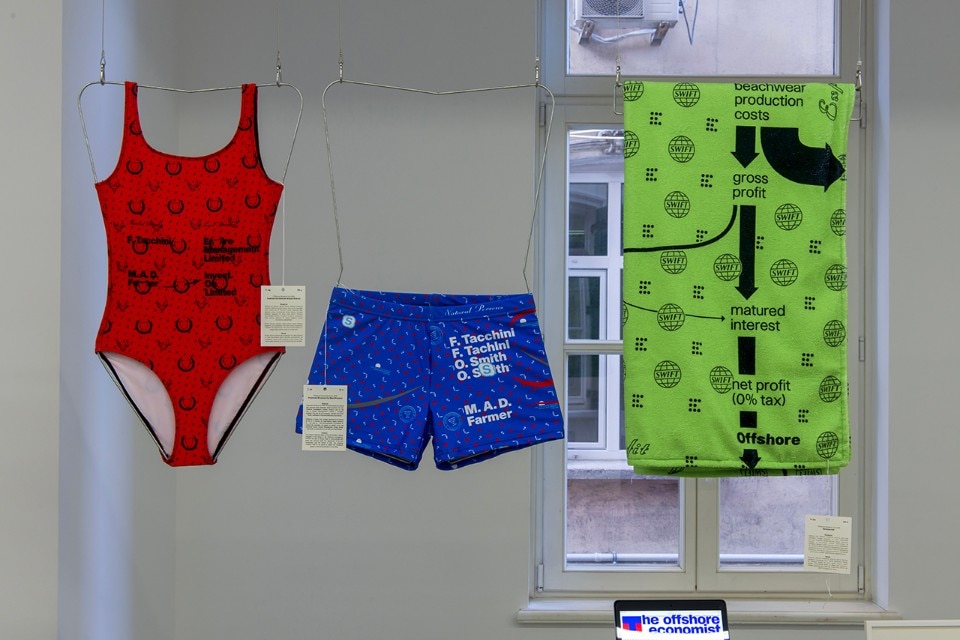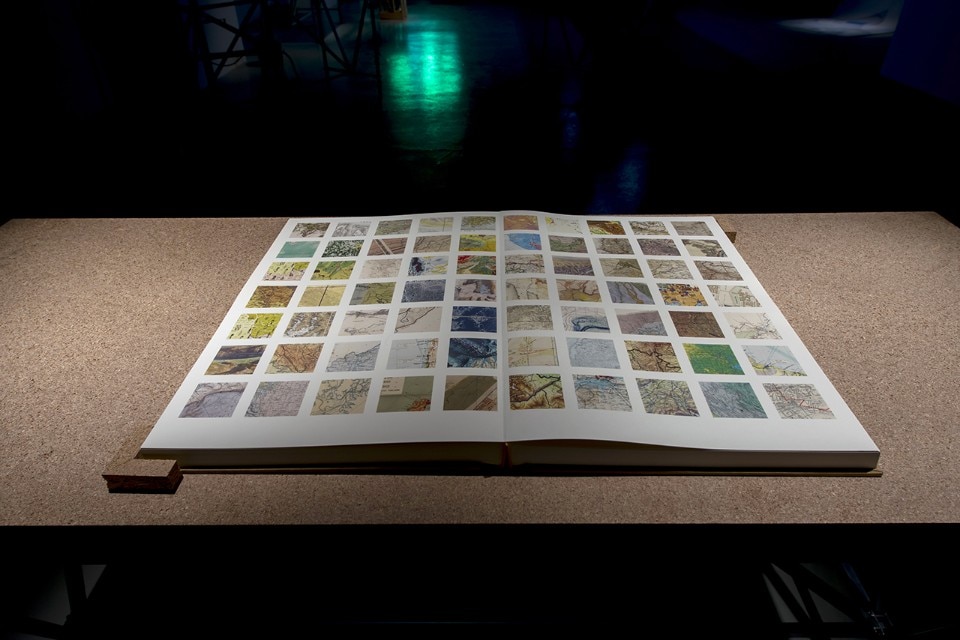“‘A School of Schools’ is a bricolage of projects, impressions, ideas and opinions that have conflicted and corroborated to actively, subconsciously and retroactively shape an educational web”. The 4th Istanbul Design Biennial curated by Jan Bolen, with Vera Sacchetti and Nathine Botha, is much more than a simple catalyst for experimental projects which offer alternatives to traditional design education. The exhibition presents a wide range of actions, documents, collections of exhibits, workshops and drawings. Examination is made of regulations and languages, units of measurement and standards, relations and performances, instruments and interfaces both physical and digital, all to expand on the notion of how/in what way/with whom/why/when learning can take place. While for the curators of the last edition of the Istanbul Design Biennial (“Are We Human”), design is always a human project, for this biennial “everything and everywhere is school, and every single interaction we have with design is pedagogical”. [2].
Instead of concentrating the works in one single location – as was the case in the previous three editions – the event has been distributed over six of the main cultural institutes in the city. In order to pass from one school to another, we are “forced” to pass through the historical district of Galata, which was founded by Genoa during the time of the Maritime Republics (14th century) and which reflects the characteristic lanes of the Italian city. Walking is the easiest way to take in the research-rich content and the installations on display.
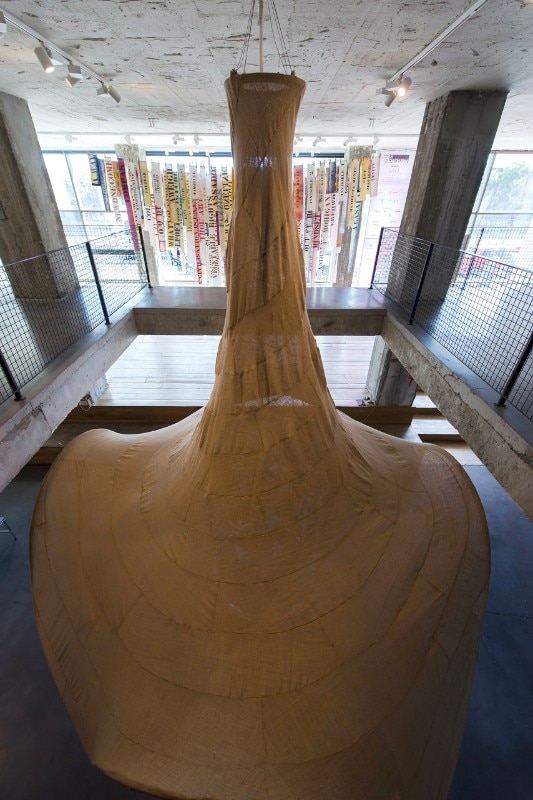
Rather than creating a defined itinerary, setting out a trajectory which indicates the future of education, this biennial proposes a cloud of experiences in which it is not easy to identify the confine between design, education and daily life. The task of the curators is therefore to aggregate and contaminate the projects presented during the open call (with more than 700 proposals evaluated). In this sense, the Classrooms are six intimate spaces distributed among the six locations of the exhibition, offering – for the entire duration of the biennial – a rich programme of events, discussions, actions, laboratories and mental exercises. These are meeting points which are presented as catalysts for horizontal discussion. It is no coincidence that the most cited philosopher during the first few days was the Austrian Ivan Illich (1926-2002) who, in the famous work Deschooling society wrote: “The most radical alternative to school would be a network or service which gave each man the same opportunity to share his current concern with others motivated by the same concern”.
In an era of weak and distant relations, of interactions and sharing on social networks, physical encounter is more important than ever, and this biennial has the benefit of being able to catalyse young energies. It is the kind of platform for dialogue which Illich hopes could replace institutional school. There are no grand lectures held by archistars or spectacular installations, but simply a strong desire to discuss matters related to design and reality. This passion is difficult to express on Instagram and can only be felt by taking part in the scheduled events.
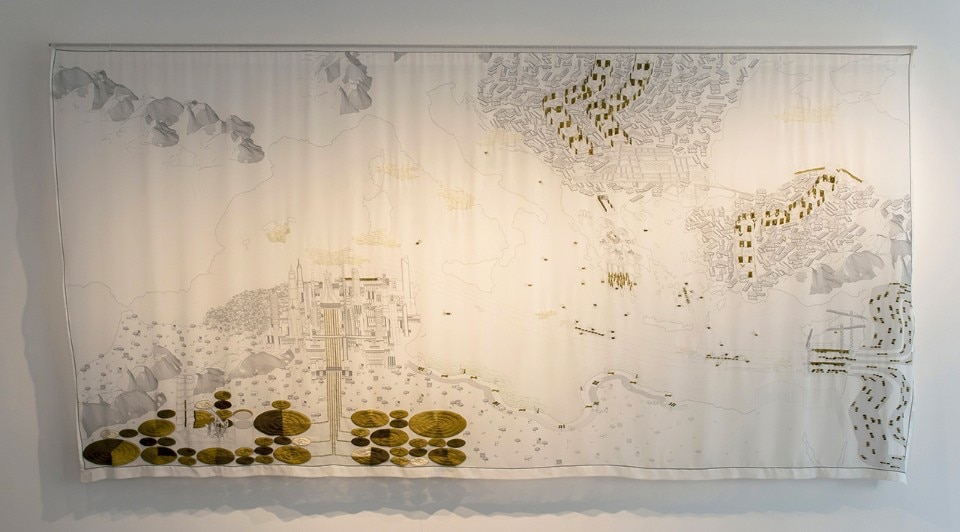
Creating a network of players and varied forms of knowledge is not enough: the range, the capillarity and the form of these networks are the factors which determine its quality. One only needs to consider the European Erasmus project, which allows for the mobility of hundreds of thousands of young Europeans, but which – due to distinct policy choices – excludes North African countries. A choice of this kind, although less evident, is as powerful as the compulsory closing of access points to the Old Continent. One fault of this biennial is perhaps the uneven geographical distribution of the participants, which is too Eurocentric. There are very few projects from Africa and South America, and perhaps fewer participants from Turkey than the Netherlands. Decolonising education is not only a slogan to be used at the conferences (maybe held by prestigious Western academic institutions), but a real and urgent need. According to the Indian professor Priyamvada Gopal: “To decolonise and not just diversify curriculums is to recognise that knowledge is inevitably marked by power relations.”
Thus – as this biennial teaches us – we need to constantly upset everything, starting with ourselves. Provoke doubt and curiosity, enter into the crux of questions and accept complexity. Everything is education, everything is design, everything is politics.
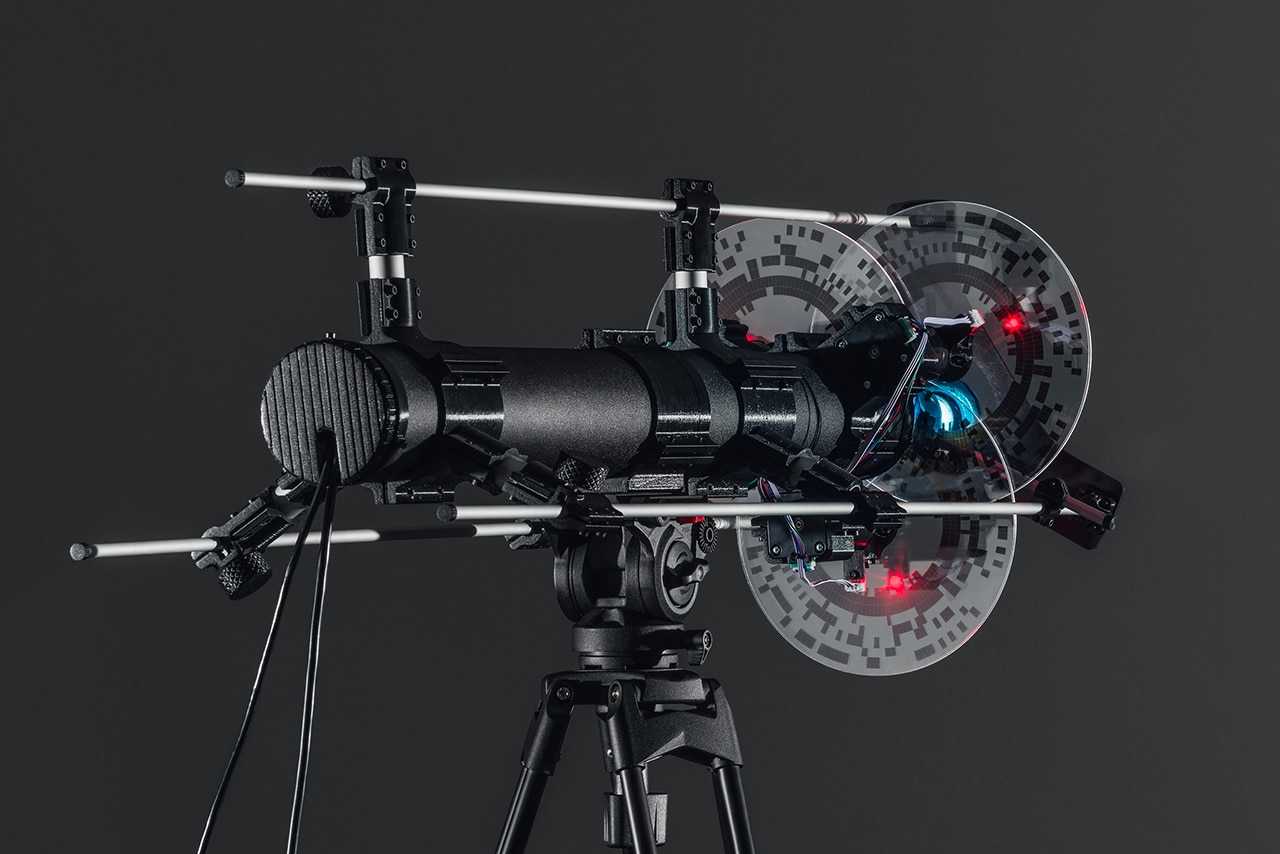
 View gallery
View gallery
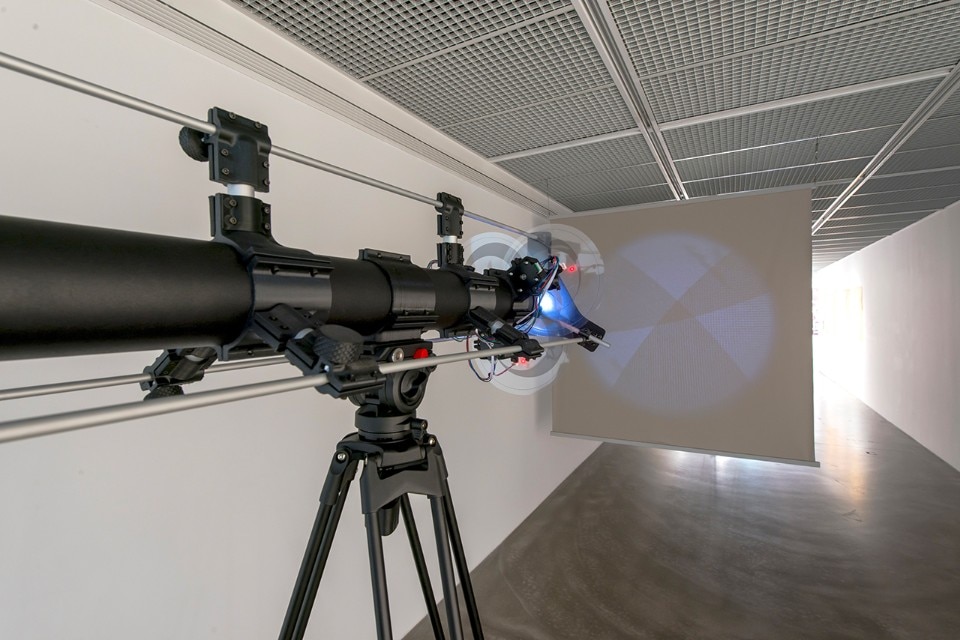
The Physical Geography of the Sea – Studio Folder (Marco Ferrari, Elisa Pasqual, Pietro Leoni)
Currents School explores information networks, spheres and connections—both digital and analogue, abstract and embodied —to critically examine technologies and hierarchies
Installation view, Yapı Kredi Culture Centre, 4. Istanbul Design Biennial, 2018
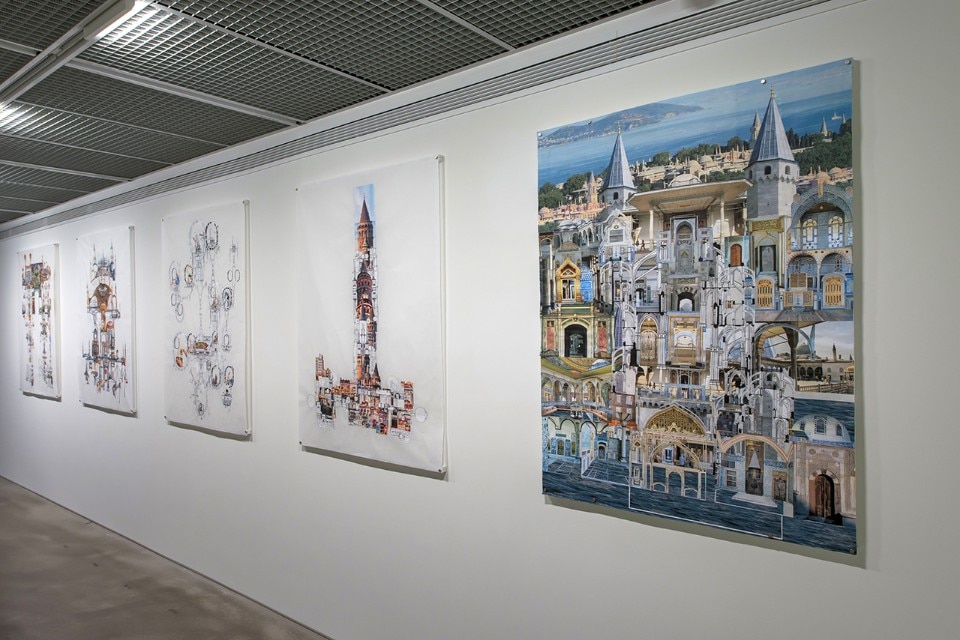
Istanbul Techno-tourism – Ana Peñalba
Installation view, Yapı Kredi Culture Centre, 4. Istanbul Design Biennial, 2018
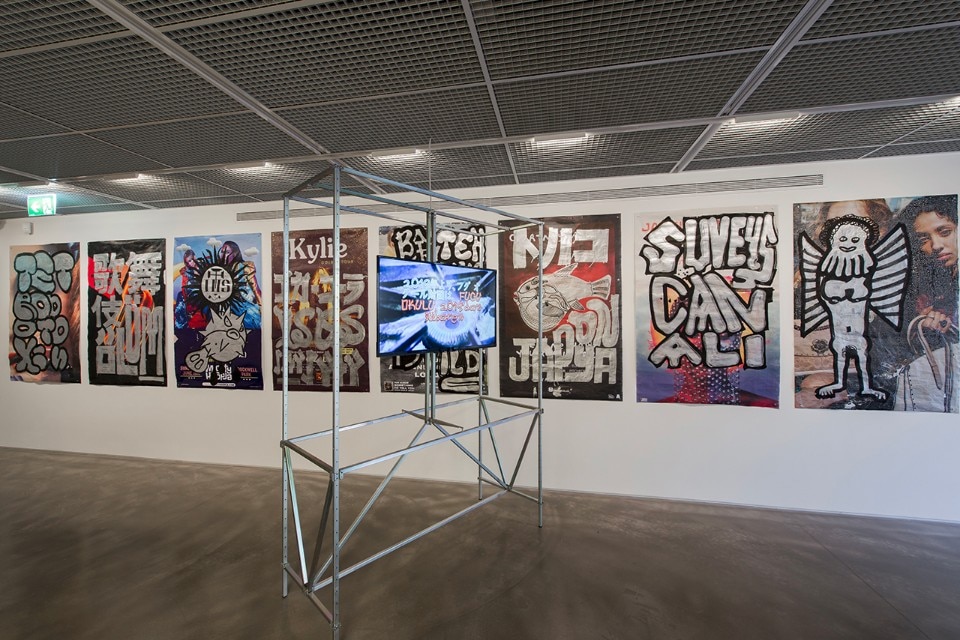
Fugu Okulu – åbäke
Installation view, Yapı Kredi Culture Centre, 4. Istanbul Design Biennial, 2018
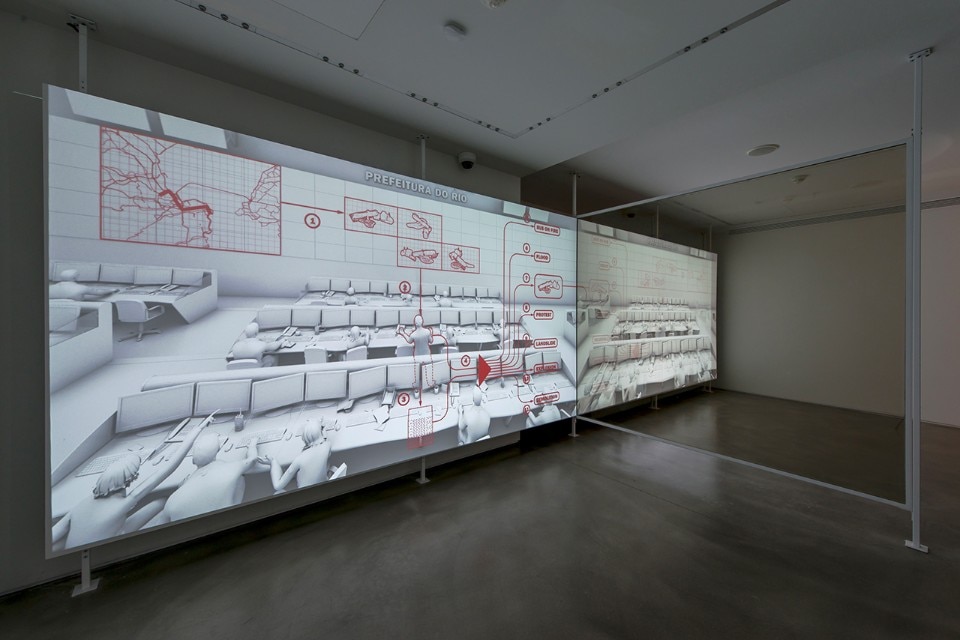
No-Stop Classroom – Farzin Lot -Jam and Mark Wasiuta
Installation view, Yapı Kredi Culture Centre, 4. Istanbul Design Biennial, 2018
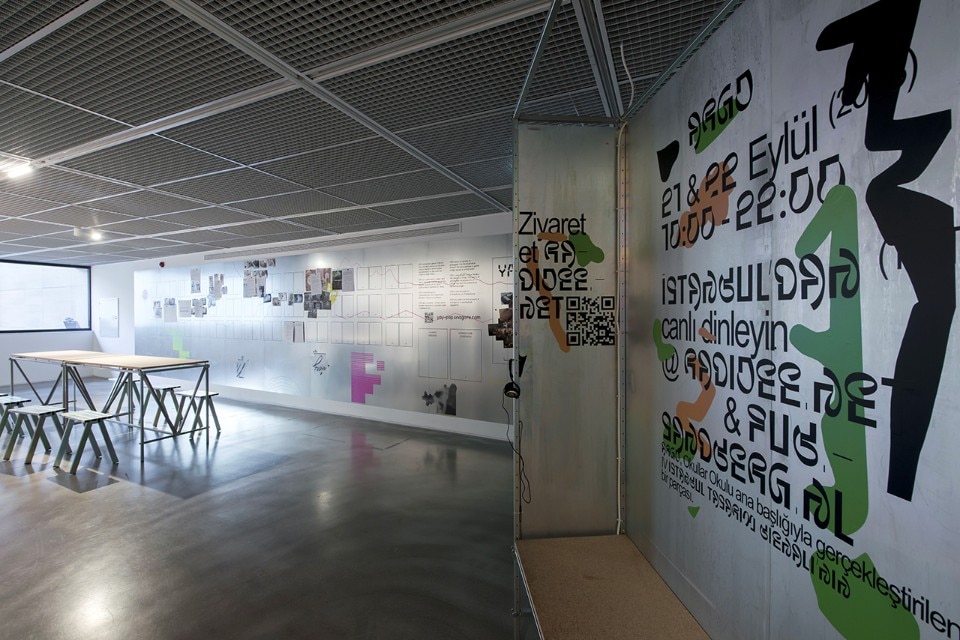
ARGO – Radioee.net and PUB Radio
Installation view, Yapı Kredi Culture Centre, 4. Istanbul Design Biennial, 2018
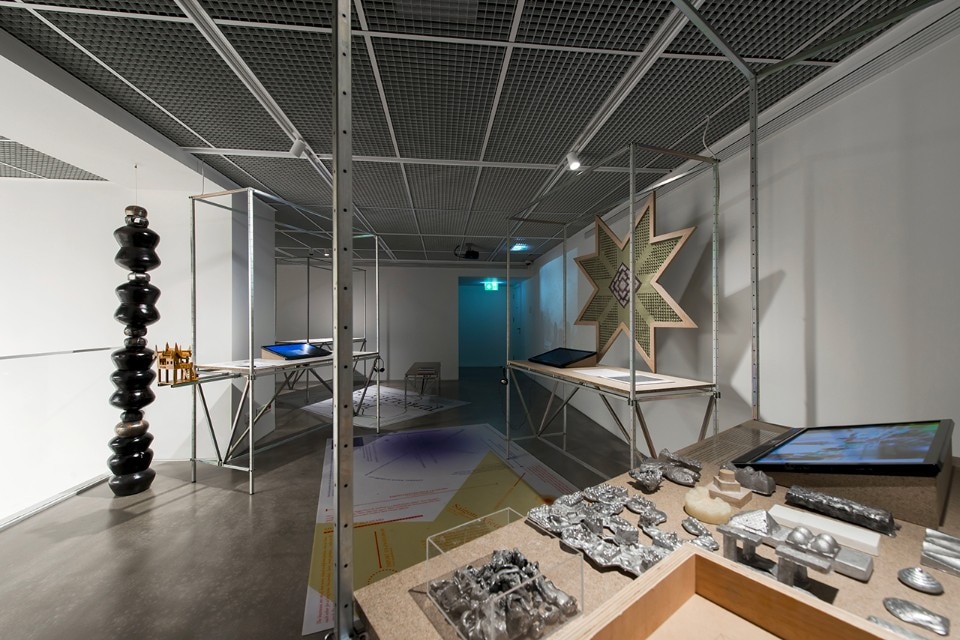
Transitional School – Aformal Academy and ARK.WORLD
Installation view, Yapı Kredi Culture Centre, 4. Istanbul Design Biennial, 2018
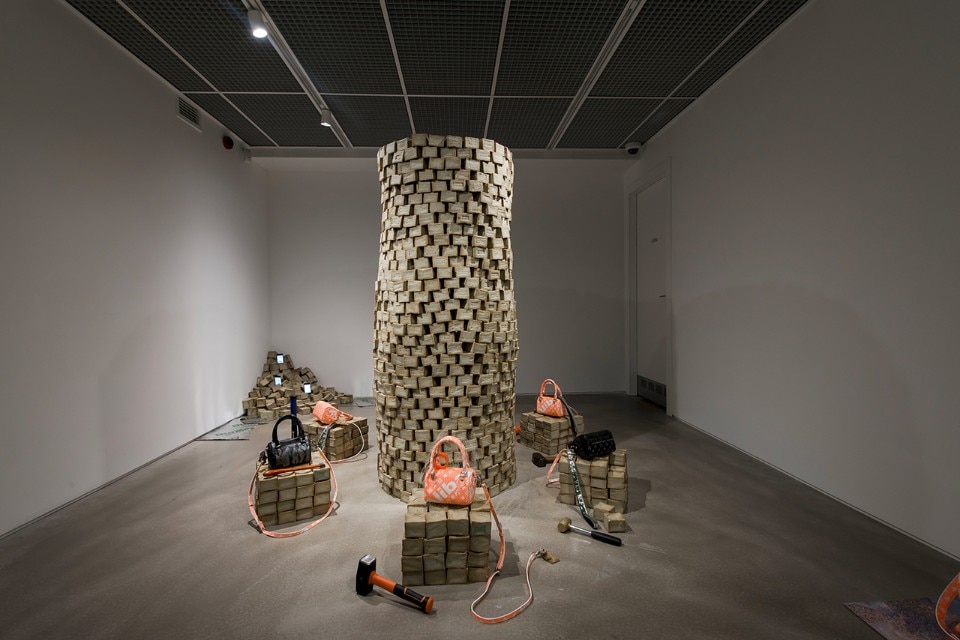
OpenSesame – CMP Office
Installation view, Yapı Kredi Culture Centre, 4. Istanbul Design Biennial, 2018
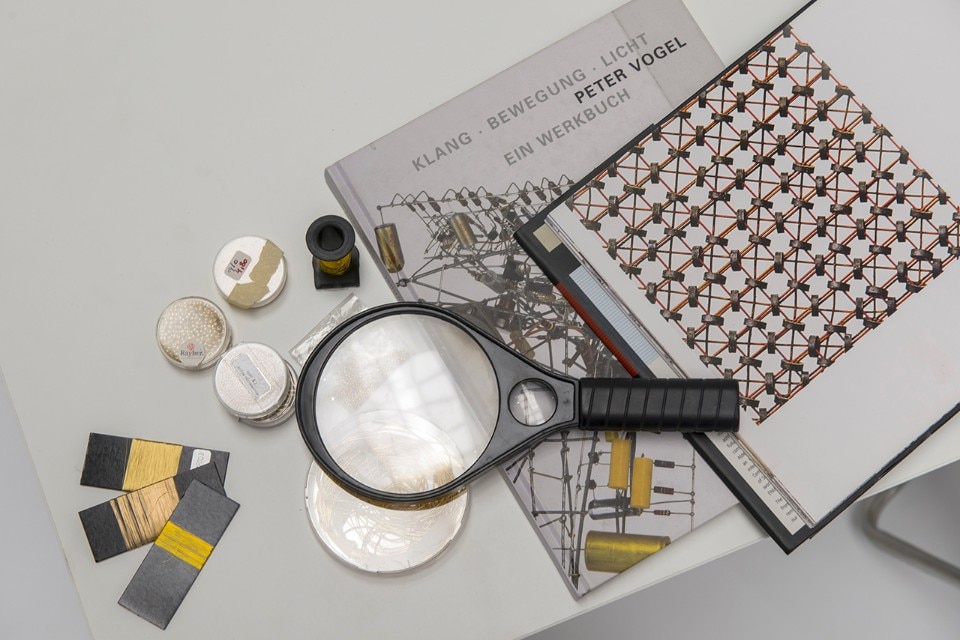
Stitching Worlds – Ebru Kurbak, Irene Posh
Installation view, Yapı Kredi Culture Centre, 4. Istanbul Design Biennial, 2018
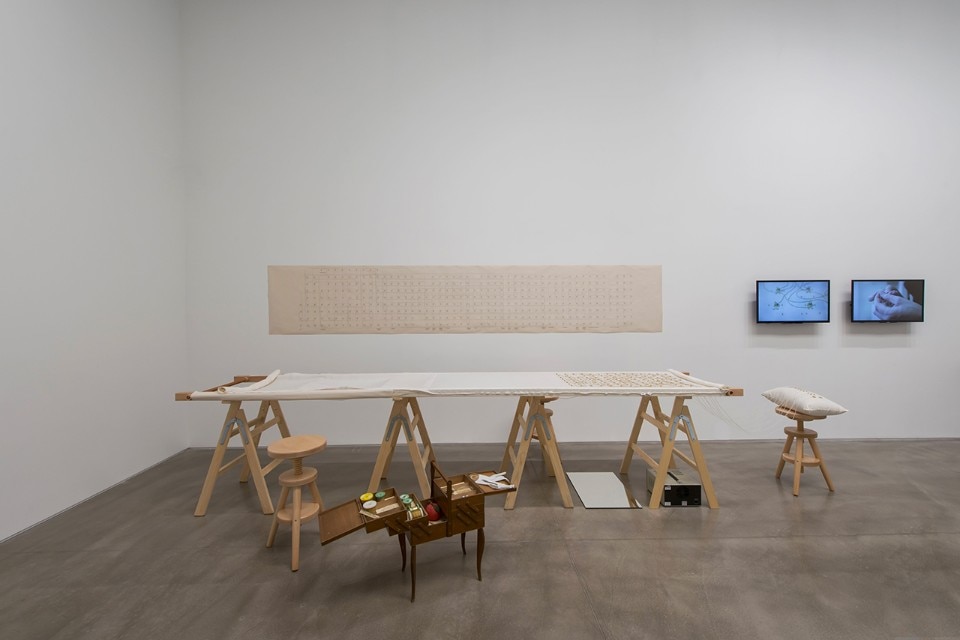
The Embroidered Computer – Ebru Kurbak, Irene Posh
Installation view, Yapı Kredi Culture Centre, 4. Istanbul Design Biennial, 2018
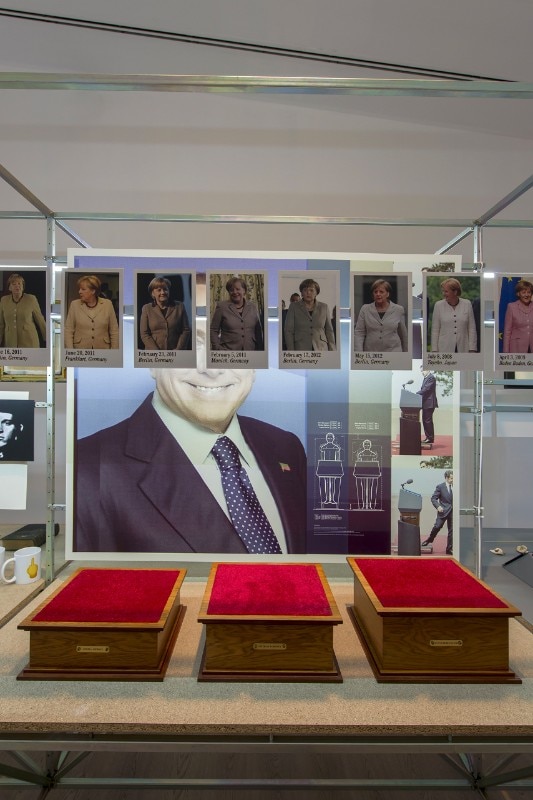
A Body of Trust – Mark Henning
Installation view, Pera Museum, 4. Istanbul Design Biennial, 2018
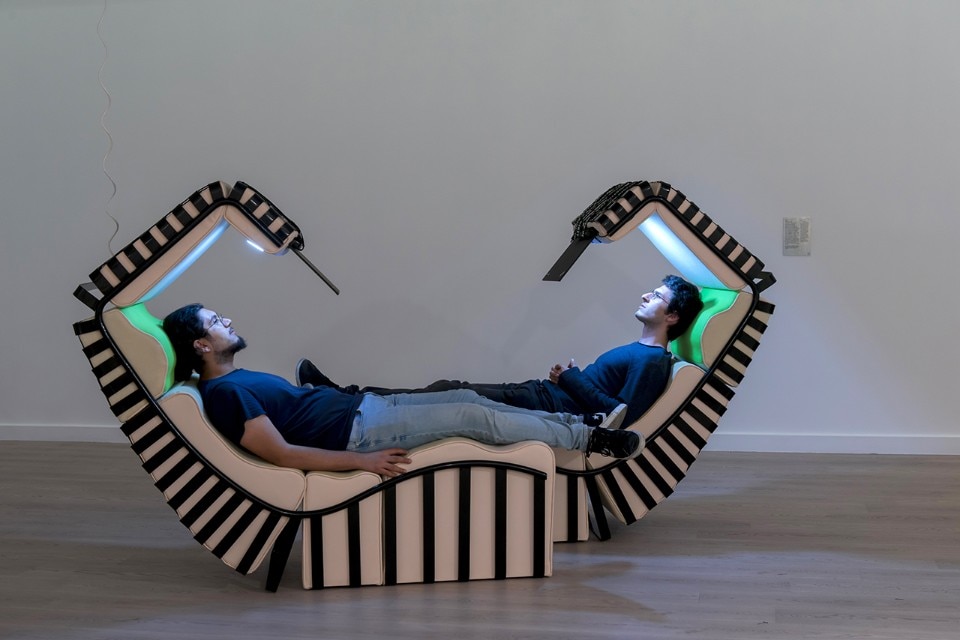
Deep Digital Twin – Legrand Jäger
Installation view, Pera Museum, 4. Istanbul Design Biennial, 2018
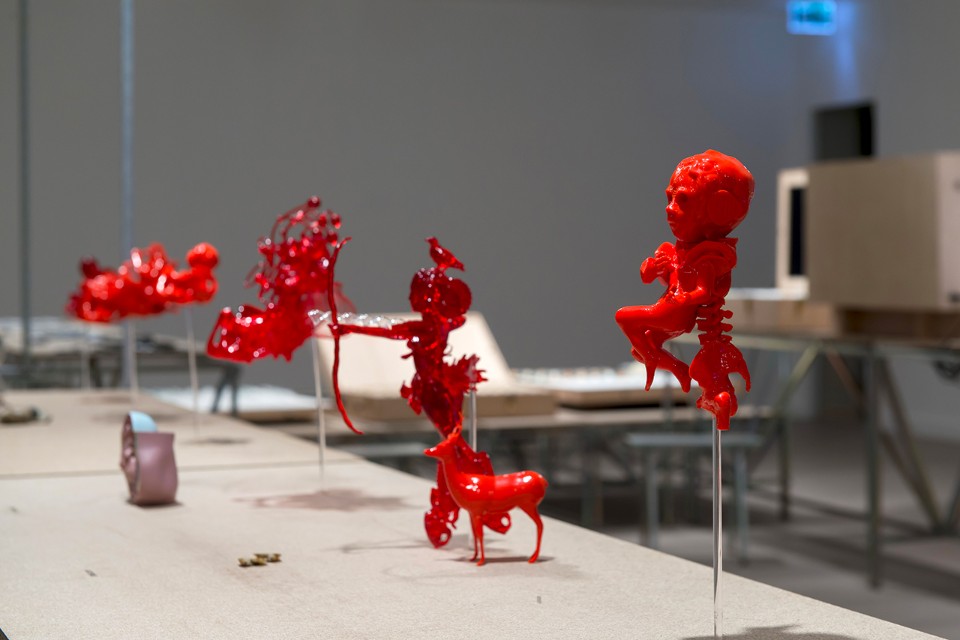
Genetically Modified Generation (Designer Babies) – Pınar Yoldaş
Scales School investigates the fluidity of taxonomies, quantifications, and established norms, standards and values, to highlight scientific and cultural biases and assumptions
Installation view, Pera Museum, 4. Istanbul Design Biennial, 2018
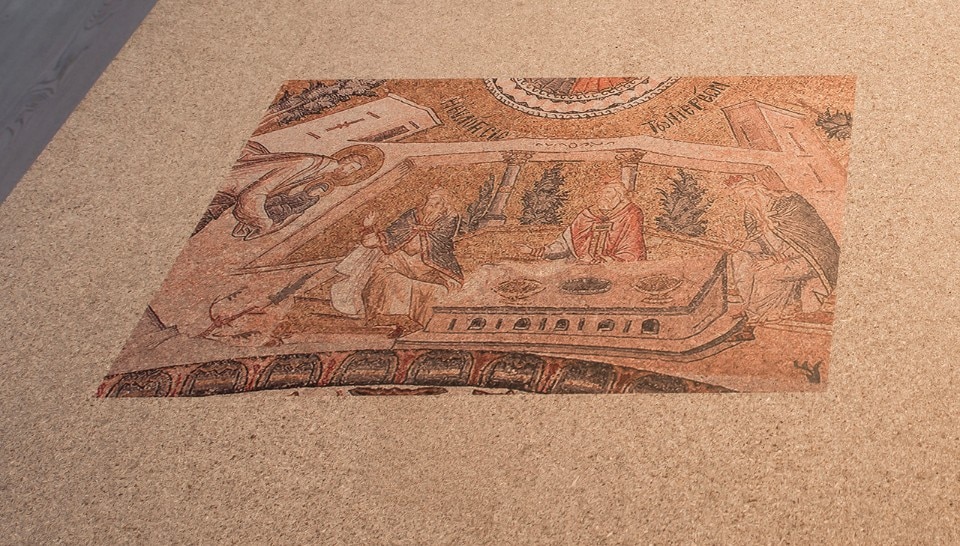
Notes on Miniature – Aslı Çiçek
Installation view, Pera Museum, 4. Istanbul Design Biennial, 2018
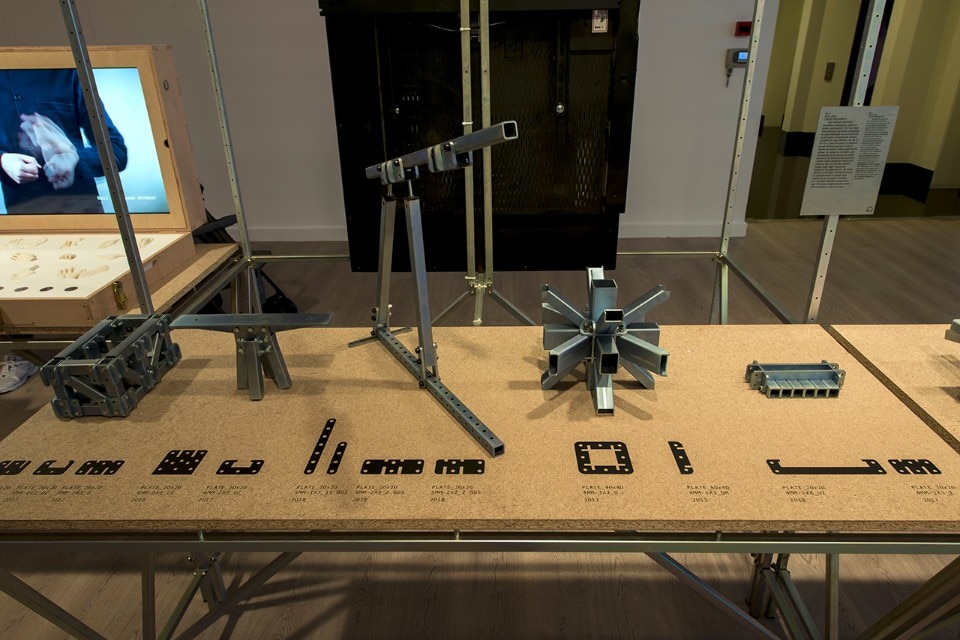
III+1 – Lukas Wegwerth
Installation view, Pera Museum, 4. Istanbul Design Biennial, 2018
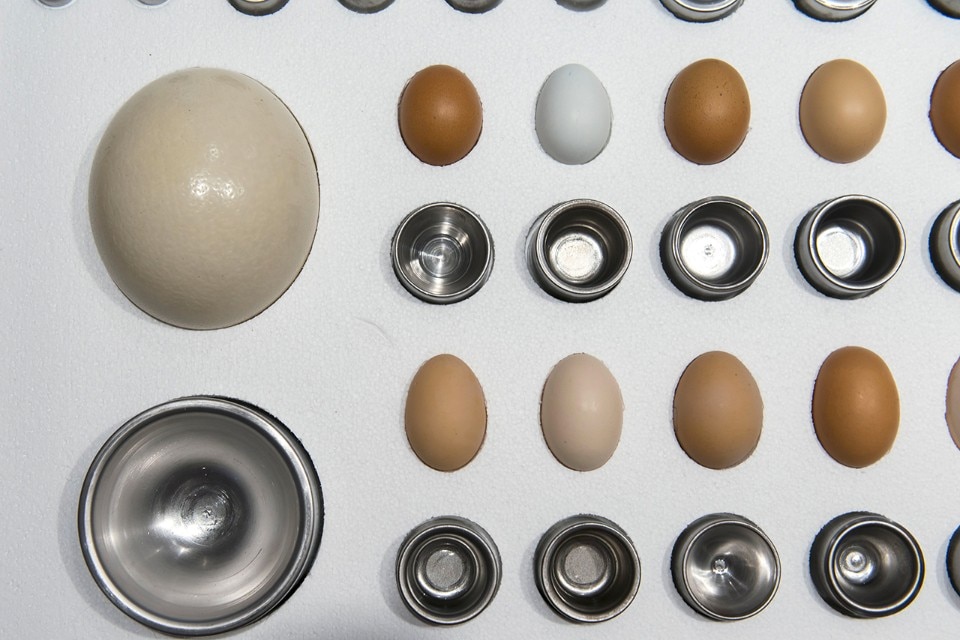
Ambiguous Standards Institute – Cansu Cürgen and Avsar Gürpınar
Installation view, Pera Museum, 4. Istanbul Design Biennial, 2018
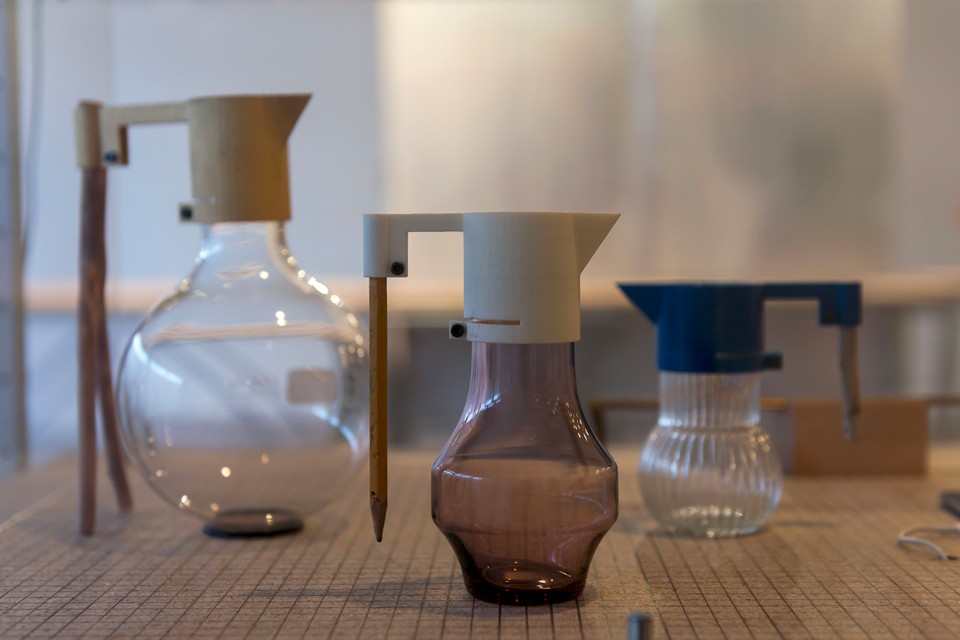
Of Instruments and Archetypes – Unfold
Installation view, Pera Museum, 4. Istanbul Design Biennial, 2018
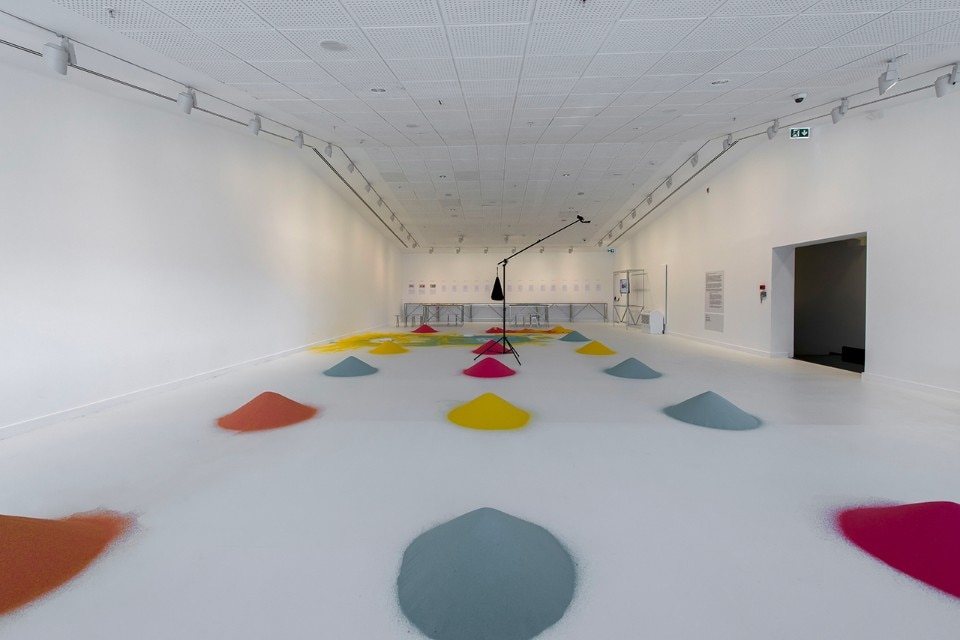
Acting Things VII, School of Fluid Measures – Judith Seng
Installation view, Pera Museum, 4. Istanbul Design Biennial, 2018
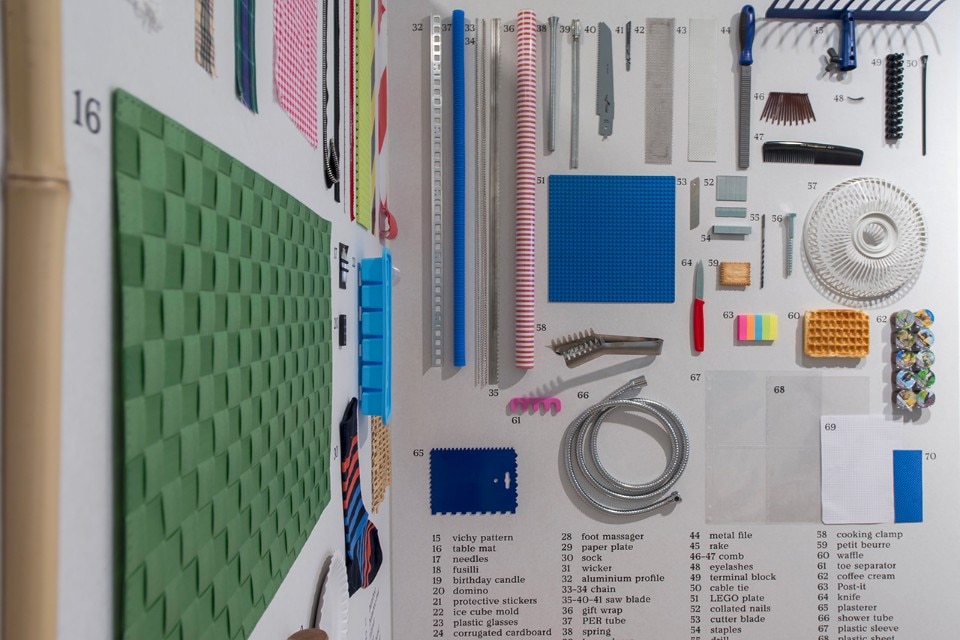
The Life of Things – ECAL + MacGuffin Magazine
Installation view, Pera Museum, 4. Istanbul Design Biennial, 2018
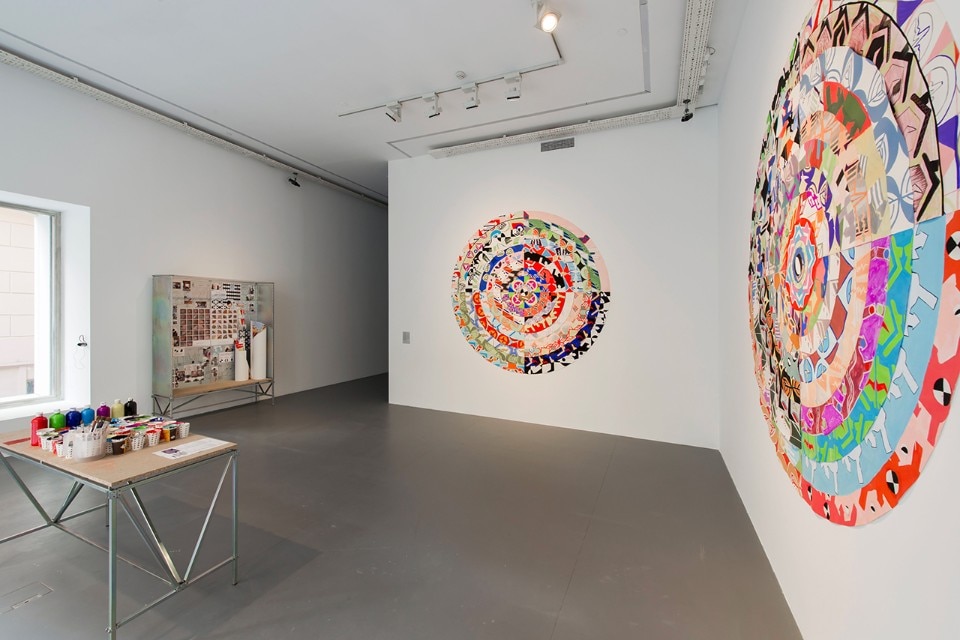
The School of Earthquake Diplomacy – Navine G. Khan-Dossos
Earth School asks what natural is, what disaster is, what progress, and who is in charge when the planet and human are forced to renegotiate our precarious relationship
Installation view, Arter, 4. Istanbul Design Biennial, 2018
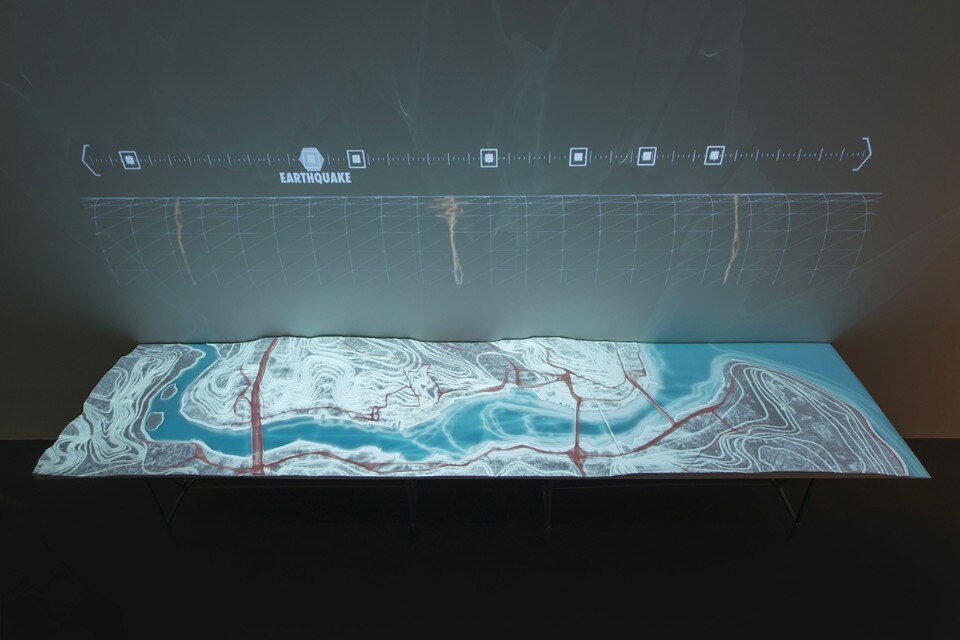
Hope on Water – SO? and collaborators
Installation view, Arter, 4. Istanbul Design Biennial, 2018
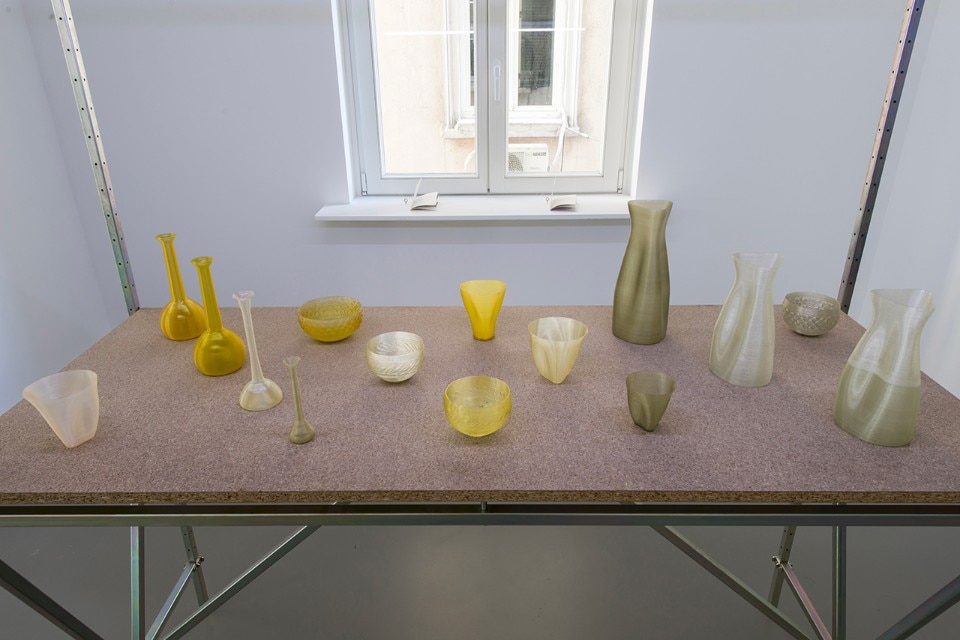
Blooming Algae – Atelier LUMA Algae Lab
Installation view, Arter, 4. Istanbul Design Biennial, 2018
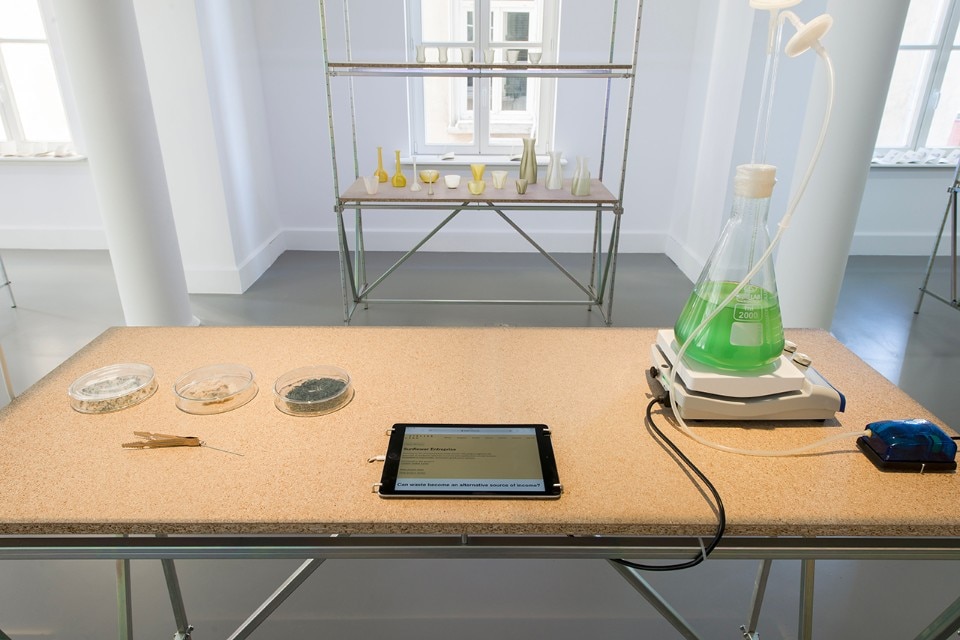
Blooming Algae – Atelier LUMA Algae Lab
Installation view, Arter, 4. Istanbul Design Biennial, 2018
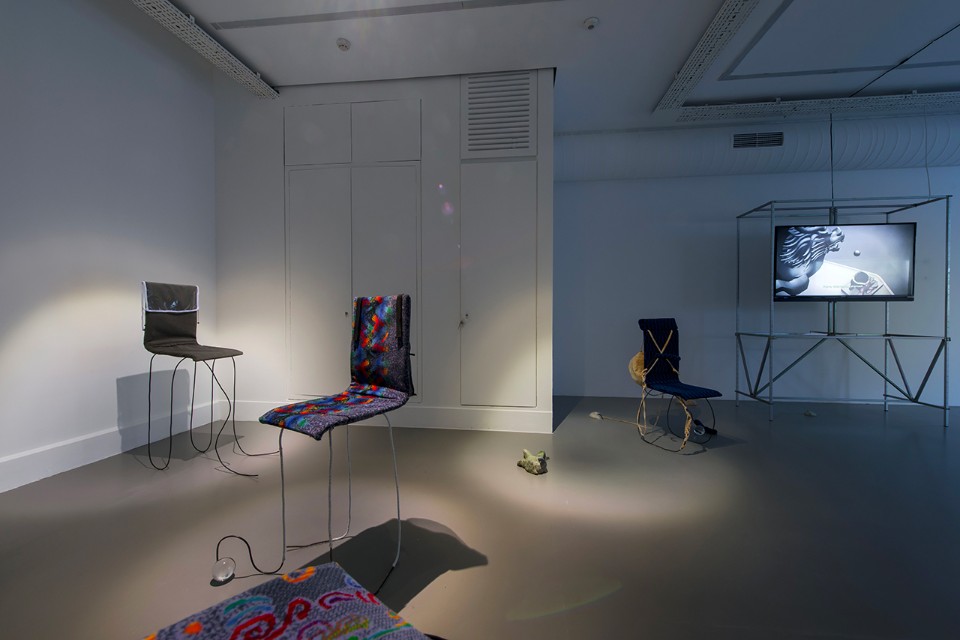
Chinese Seismic Investigations – Nina Wiesnagrotzki
Installation view, Arter, 4. Istanbul Design Biennial, 2018
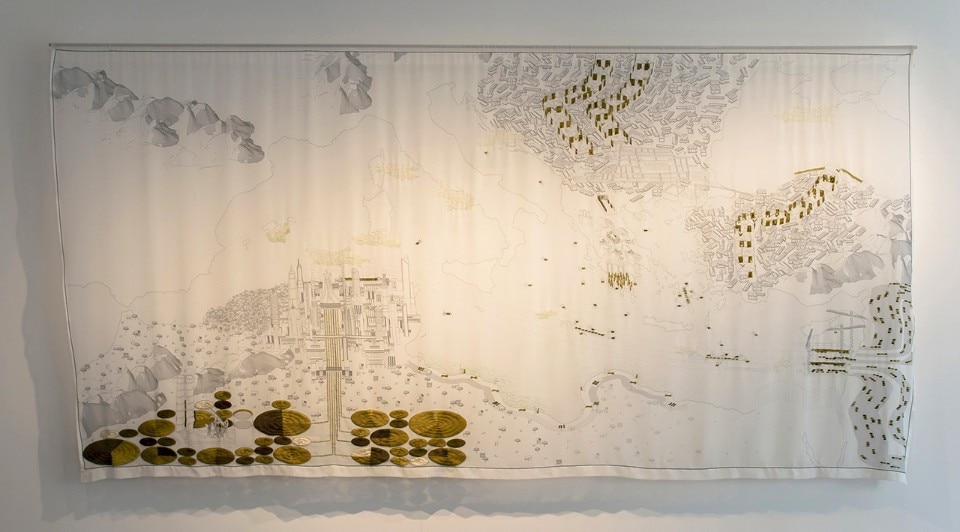
If Algae Mattered... – New South
Installation view, Arter, 4. Istanbul Design Biennial, 2018
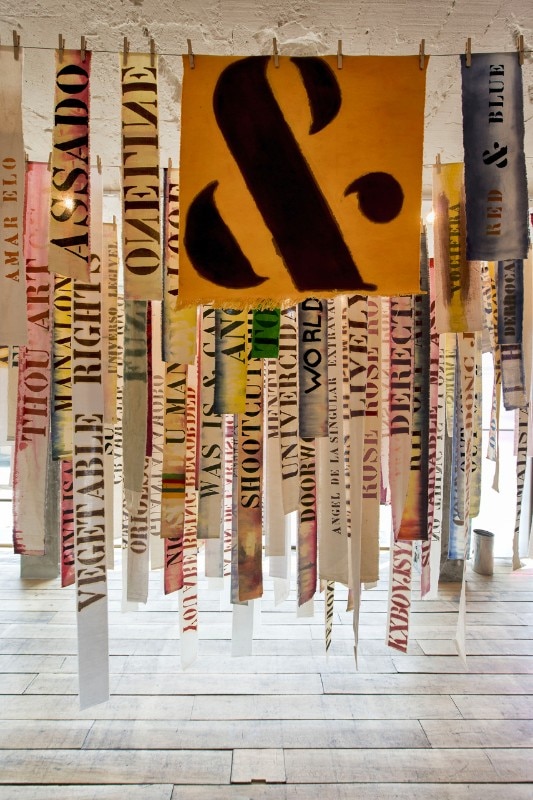
Flag Cloud Word Rain – Peter Zin
Digestion School learns from metabolic systems, patterns of consumption, cultural rituals and food infrastructure to consider how circular and lifelong learning manifest
Installation view, Studio X, 4. Istanbul Design Biennial, 2018
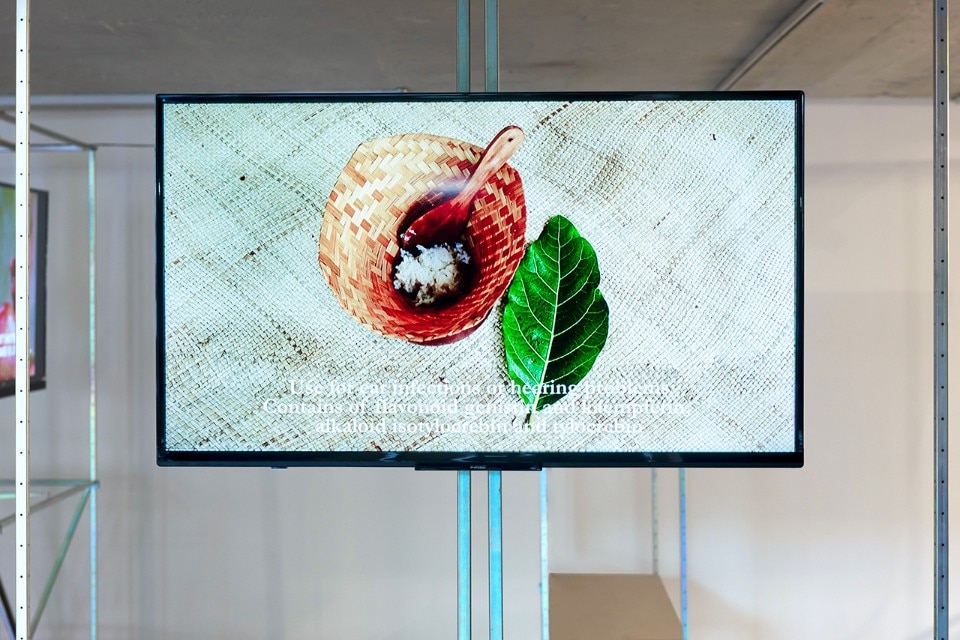
Before Everything Forgetten and Vanished – Lifepatch
Installation view, Studio X, 4. Istanbul Design Biennial, 2018
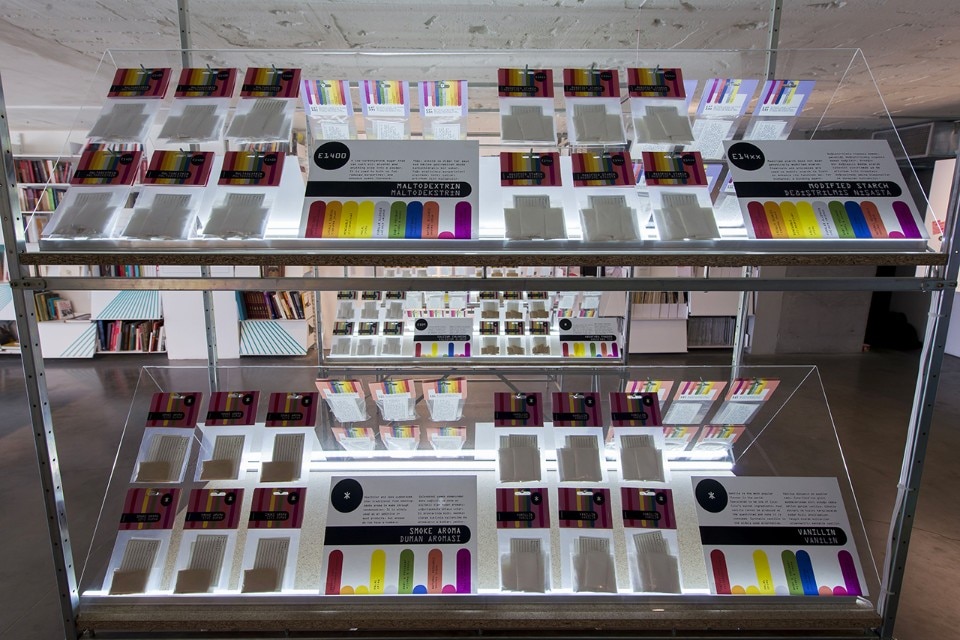
The People’s Dispensary – Eat Art Collective
Installation view, Studio X, 4. Istanbul Design Biennial, 2018
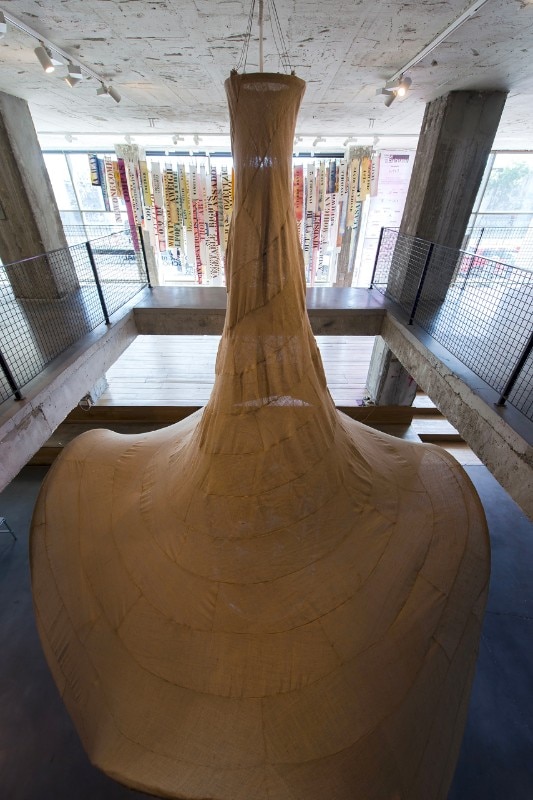
Palaver + Palaver – Mae-ling Lokko, Nana Ofori-Atta Ayim, Selassie Ataditka, Gustavo Crembil
Digestion School learns from metabolic systems, patterns of consumption, cultural rituals and food infrastructure to consider how circular and lifelong learning manifest
Installation view, Studio X, 4. Istanbul Design Biennial, 2018
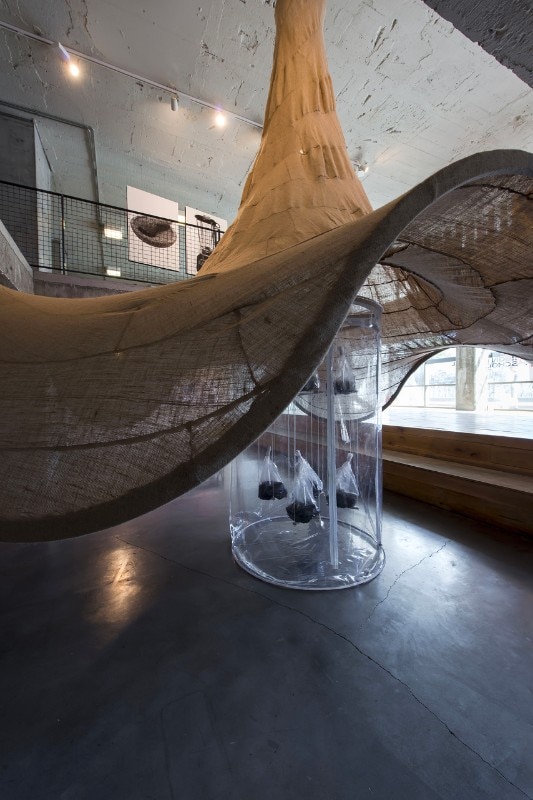
Palaver + Palaver – Mae-ling Lokko, Nana Ofori-Atta Ayim, Selassie Ataditka, Gustavo Crembil
Installation view, Studio X, 4. Istanbul Design Biennial, 2018

From Marketplace – Gamze Gündüz, Güher Tan, Tangör Tan
Veduta dell'installazione, Studio X, 4. Istanbul Design Biennial, 2018
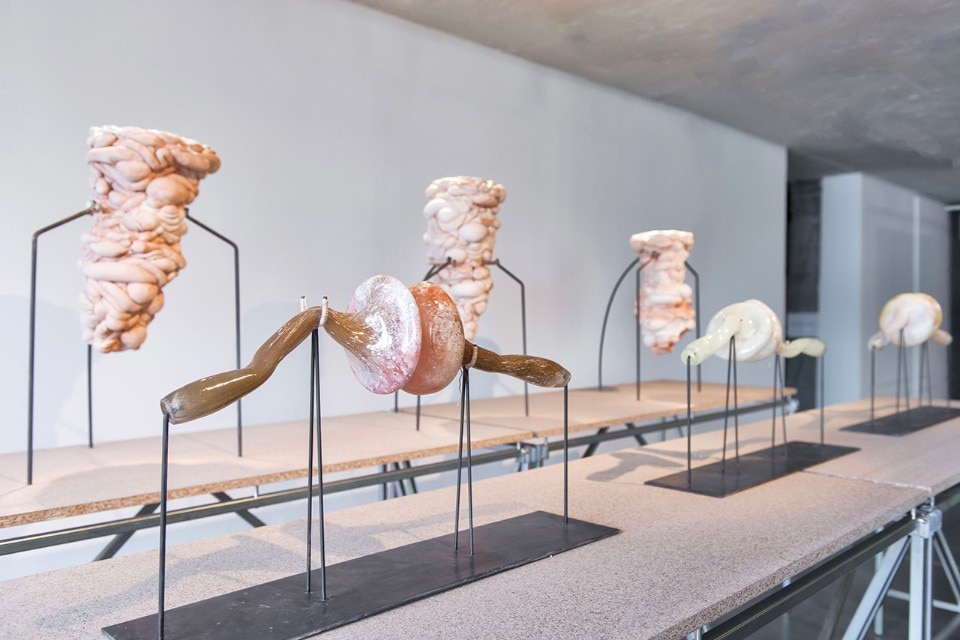
A Colloquy of Vessels, Faciality Machine – Carlos Monleón
Installation view, Studio X, 4. Istanbul Design Biennial, 2018
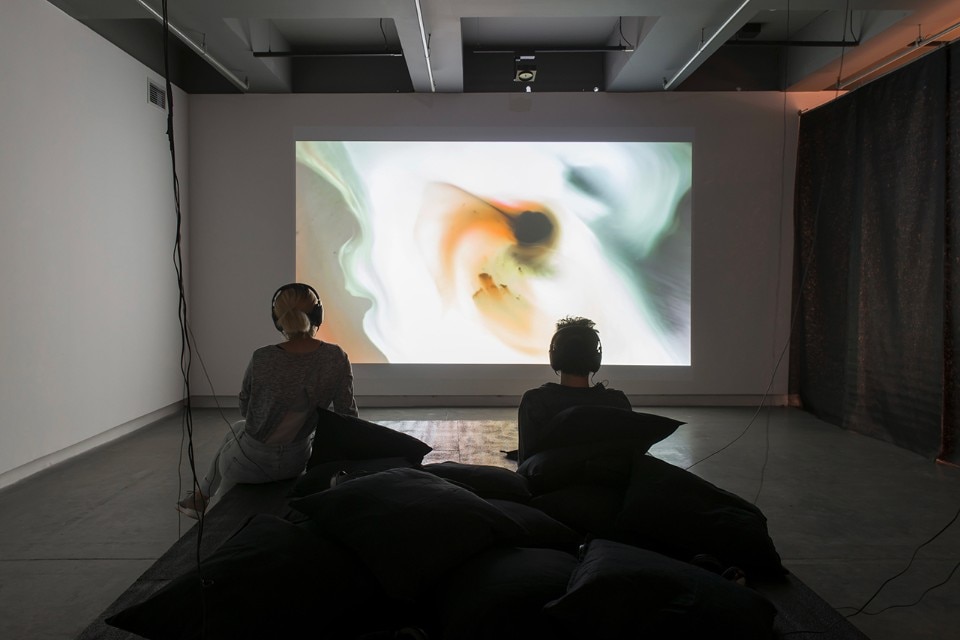
Artık Uyku Yok, Artık Yok – Danilo Correale
Time School travels from accelerationism to deep time, through contested pasts and speculative futures, to shift durational perspectives and the objects that dictate them
Installation view, Salt Galata, 4. Istanbul Design Biennial, 2018
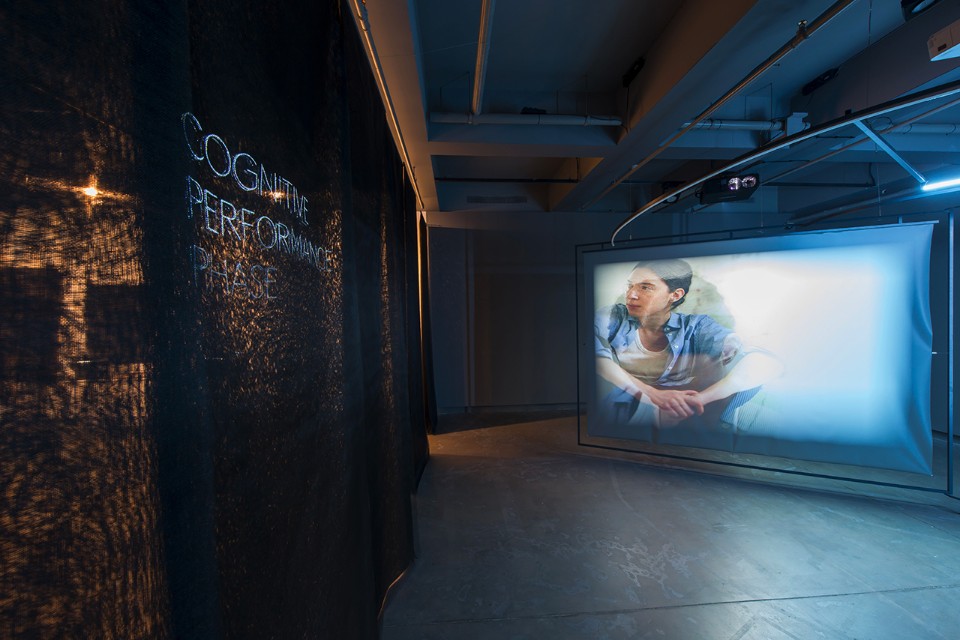
Circadian Space – Helga Schmid
Installation view, Salt Galata, 4. Istanbul Design Biennial, 2018
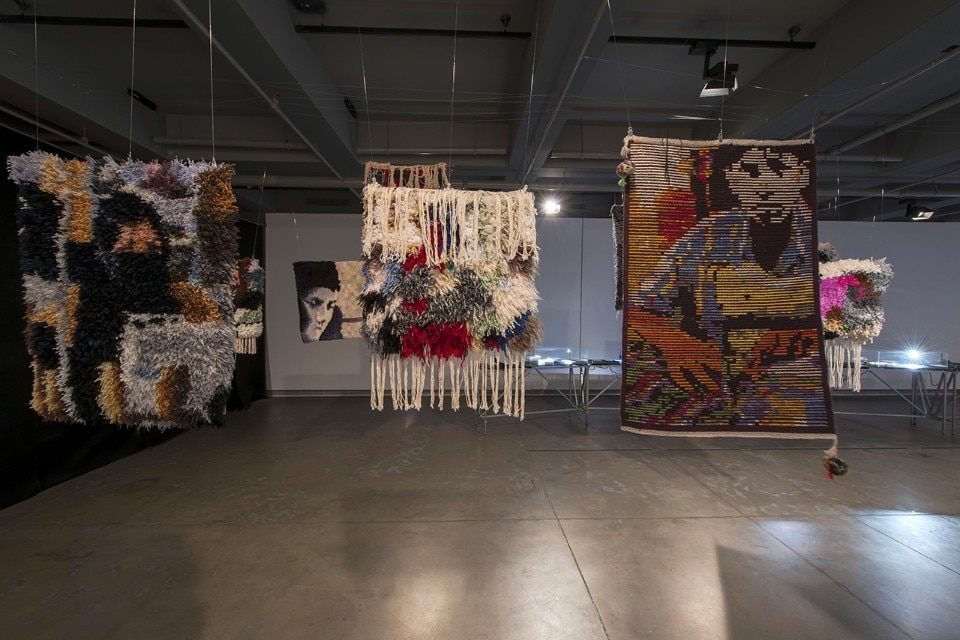
Google Weaving Stop-time – Emelie Röndahl and collaborators
Installation view, Salt Galata, 4. Istanbul Design Biennial, 2018
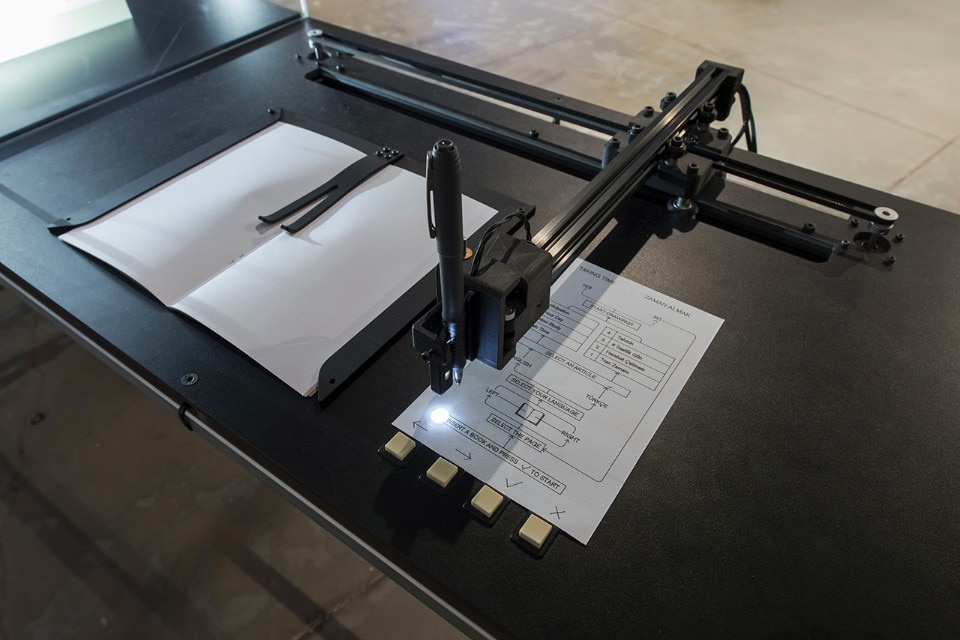
A Commonplace Book – Commonplace Studio, Jesse Howard and Tim Knapen
Installation view, Salt Galata, 4. Istanbul Design Biennial, 2018
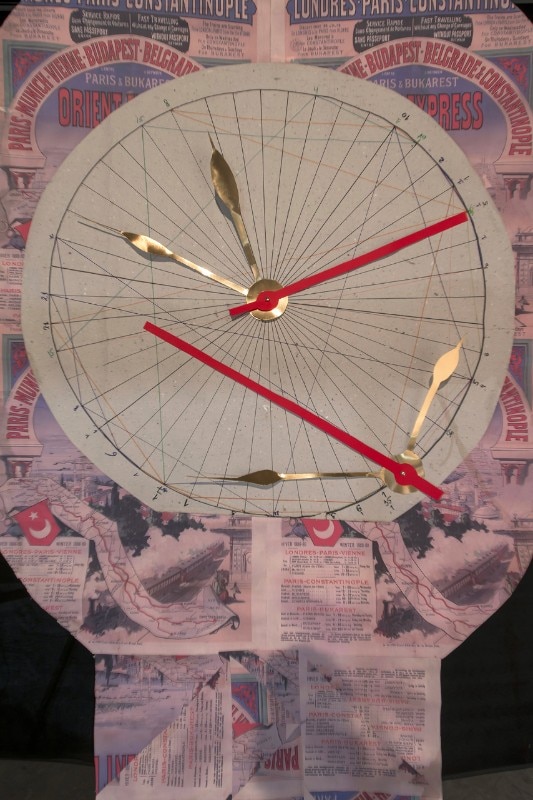
Fieldstation: Time (Inhabiting Time) – Ecole Mondiale
Installation view, Salt Galata, 4. Istanbul Design Biennial, 2018
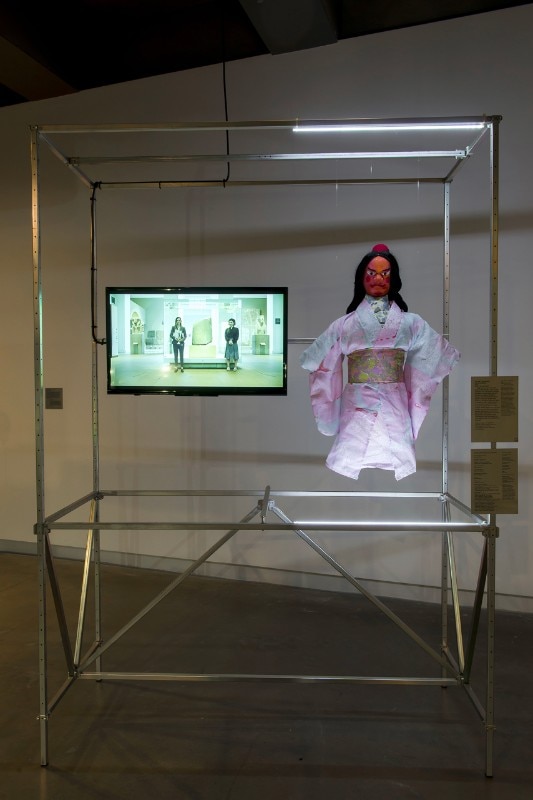
I Am (Not) A Monster – Nelly Ben Hayoun
Installation view, Salt Galata, 4. Istanbul Design Biennial, 2018
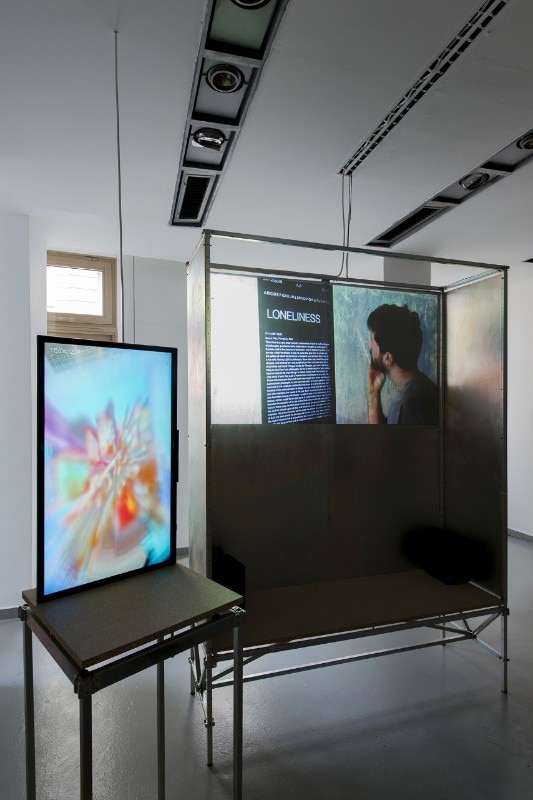
An I: Talking to My Digital Self – Camilo Oliveira
Unmaking School emphasises that the irrepressible human instinct to be creative is a pedagogical dynamo that drives innovation, redefines work, and reshapes our cities
Installation view, Salt Galata, 4. Istanbul Design Biennial, 2018
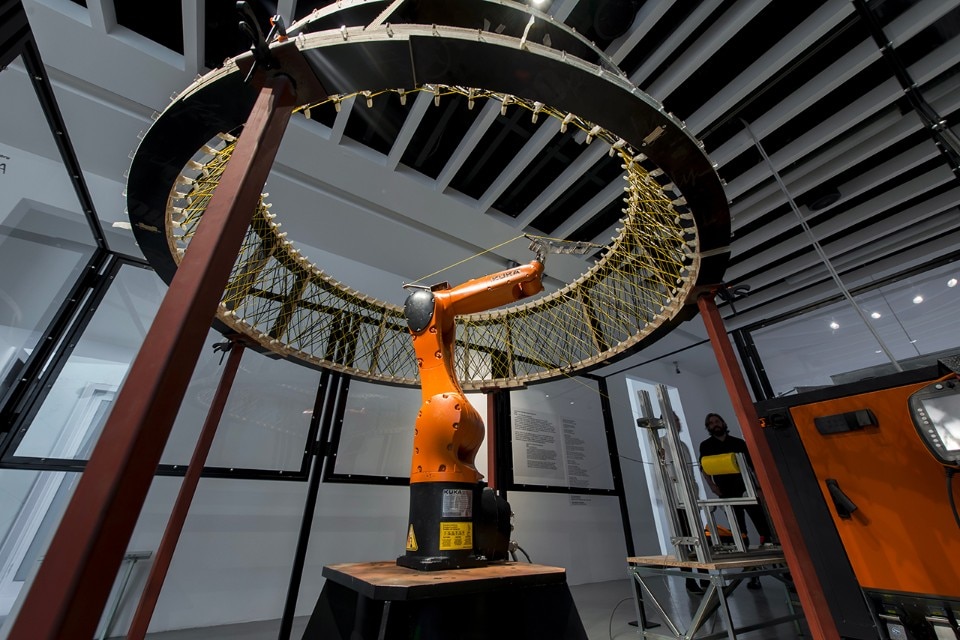
Docendo Discimus Instrumantae – FABB and contributors
Installation view, Salt Galata, 4. Istanbul Design Biennial, 2018
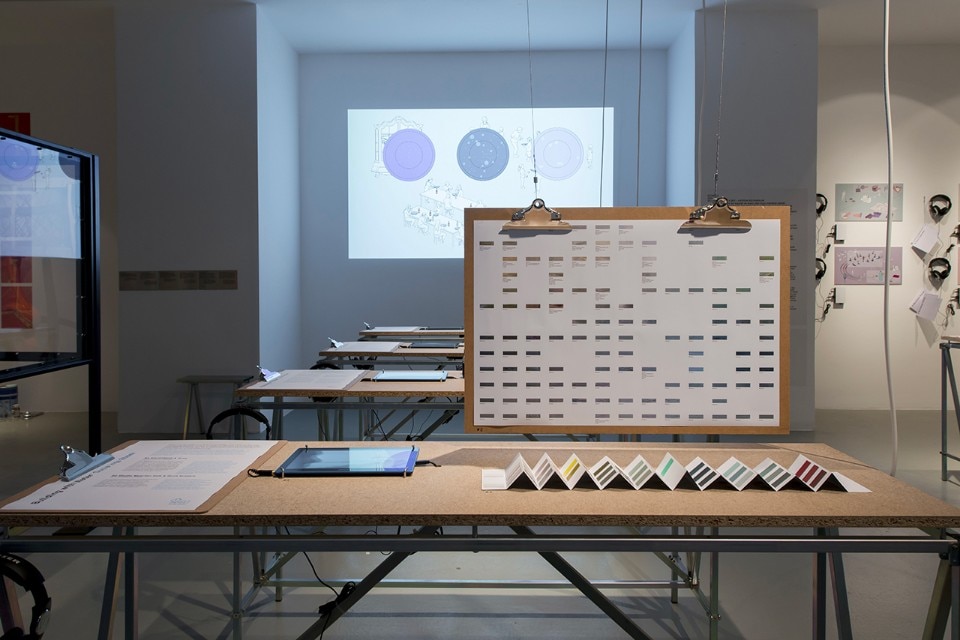
Water School – Studio Makking & Bey and contributors
Installation view, Salt Galata, 4. Istanbul Design Biennial, 2018
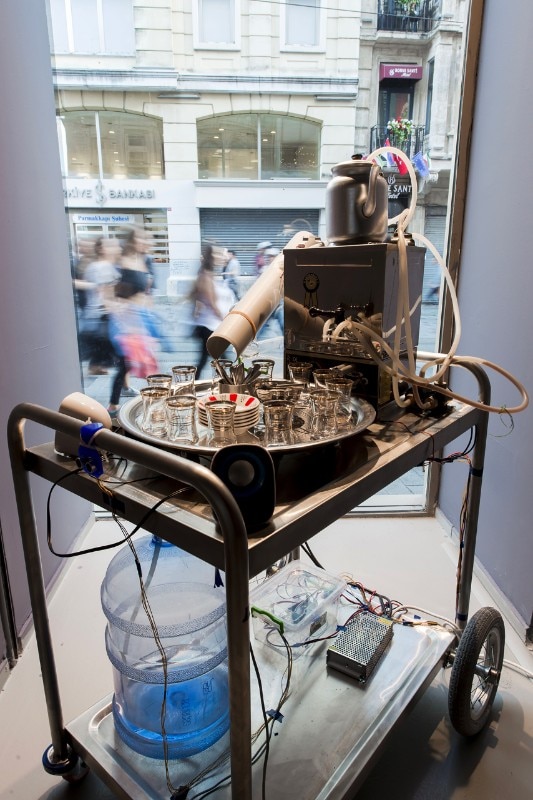
The Post-Labouratory – Ottonie von Roeder
Installation view, Salt Galata, 4. Istanbul Design Biennial, 2018
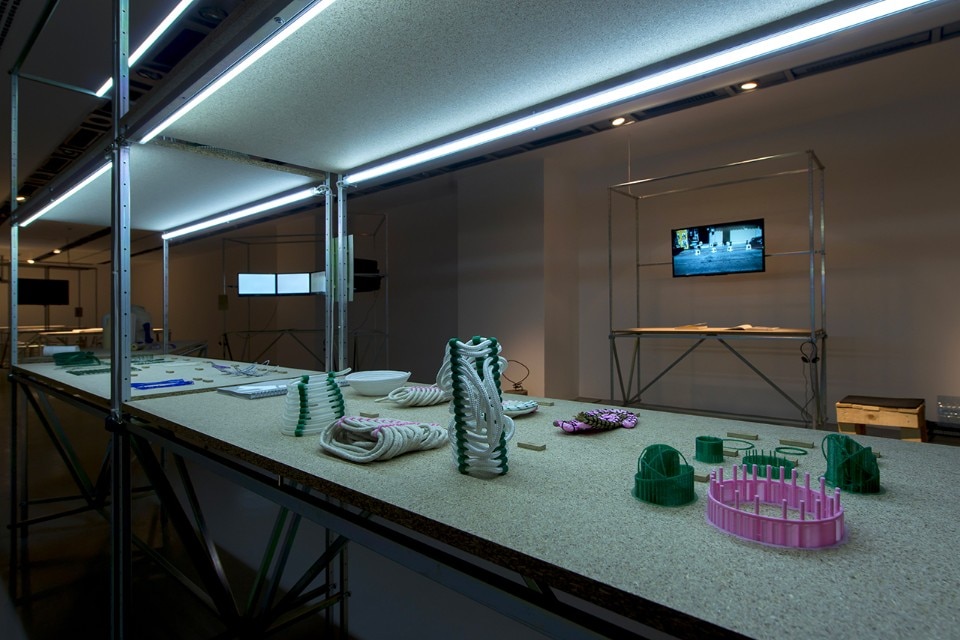
Crossing Parallels – Amandine David
Installation view, Salt Galata, 4. Istanbul Design Biennial, 2018

The Physical Geography of the Sea – Studio Folder (Marco Ferrari, Elisa Pasqual, Pietro Leoni)
Currents School explores information networks, spheres and connections—both digital and analogue, abstract and embodied —to critically examine technologies and hierarchies
Installation view, Yapı Kredi Culture Centre, 4. Istanbul Design Biennial, 2018

Istanbul Techno-tourism – Ana Peñalba
Installation view, Yapı Kredi Culture Centre, 4. Istanbul Design Biennial, 2018

Fugu Okulu – åbäke
Installation view, Yapı Kredi Culture Centre, 4. Istanbul Design Biennial, 2018

No-Stop Classroom – Farzin Lot -Jam and Mark Wasiuta
Installation view, Yapı Kredi Culture Centre, 4. Istanbul Design Biennial, 2018

ARGO – Radioee.net and PUB Radio
Installation view, Yapı Kredi Culture Centre, 4. Istanbul Design Biennial, 2018

Transitional School – Aformal Academy and ARK.WORLD
Installation view, Yapı Kredi Culture Centre, 4. Istanbul Design Biennial, 2018

OpenSesame – CMP Office
Installation view, Yapı Kredi Culture Centre, 4. Istanbul Design Biennial, 2018

Stitching Worlds – Ebru Kurbak, Irene Posh
Installation view, Yapı Kredi Culture Centre, 4. Istanbul Design Biennial, 2018

The Embroidered Computer – Ebru Kurbak, Irene Posh
Installation view, Yapı Kredi Culture Centre, 4. Istanbul Design Biennial, 2018

A Body of Trust – Mark Henning
Installation view, Pera Museum, 4. Istanbul Design Biennial, 2018

Deep Digital Twin – Legrand Jäger
Installation view, Pera Museum, 4. Istanbul Design Biennial, 2018

Genetically Modified Generation (Designer Babies) – Pınar Yoldaş
Scales School investigates the fluidity of taxonomies, quantifications, and established norms, standards and values, to highlight scientific and cultural biases and assumptions
Installation view, Pera Museum, 4. Istanbul Design Biennial, 2018

Notes on Miniature – Aslı Çiçek
Installation view, Pera Museum, 4. Istanbul Design Biennial, 2018

III+1 – Lukas Wegwerth
Installation view, Pera Museum, 4. Istanbul Design Biennial, 2018

Ambiguous Standards Institute – Cansu Cürgen and Avsar Gürpınar
Installation view, Pera Museum, 4. Istanbul Design Biennial, 2018

Of Instruments and Archetypes – Unfold
Installation view, Pera Museum, 4. Istanbul Design Biennial, 2018

Acting Things VII, School of Fluid Measures – Judith Seng
Installation view, Pera Museum, 4. Istanbul Design Biennial, 2018

The Life of Things – ECAL + MacGuffin Magazine
Installation view, Pera Museum, 4. Istanbul Design Biennial, 2018

The School of Earthquake Diplomacy – Navine G. Khan-Dossos
Earth School asks what natural is, what disaster is, what progress, and who is in charge when the planet and human are forced to renegotiate our precarious relationship
Installation view, Arter, 4. Istanbul Design Biennial, 2018

Hope on Water – SO? and collaborators
Installation view, Arter, 4. Istanbul Design Biennial, 2018

Blooming Algae – Atelier LUMA Algae Lab
Installation view, Arter, 4. Istanbul Design Biennial, 2018

Blooming Algae – Atelier LUMA Algae Lab
Installation view, Arter, 4. Istanbul Design Biennial, 2018

Chinese Seismic Investigations – Nina Wiesnagrotzki
Installation view, Arter, 4. Istanbul Design Biennial, 2018

If Algae Mattered... – New South
Installation view, Arter, 4. Istanbul Design Biennial, 2018

Flag Cloud Word Rain – Peter Zin
Digestion School learns from metabolic systems, patterns of consumption, cultural rituals and food infrastructure to consider how circular and lifelong learning manifest
Installation view, Studio X, 4. Istanbul Design Biennial, 2018

Before Everything Forgetten and Vanished – Lifepatch
Installation view, Studio X, 4. Istanbul Design Biennial, 2018

The People’s Dispensary – Eat Art Collective
Installation view, Studio X, 4. Istanbul Design Biennial, 2018

Palaver + Palaver – Mae-ling Lokko, Nana Ofori-Atta Ayim, Selassie Ataditka, Gustavo Crembil
Digestion School learns from metabolic systems, patterns of consumption, cultural rituals and food infrastructure to consider how circular and lifelong learning manifest
Installation view, Studio X, 4. Istanbul Design Biennial, 2018

Palaver + Palaver – Mae-ling Lokko, Nana Ofori-Atta Ayim, Selassie Ataditka, Gustavo Crembil
Installation view, Studio X, 4. Istanbul Design Biennial, 2018

From Marketplace – Gamze Gündüz, Güher Tan, Tangör Tan
Veduta dell'installazione, Studio X, 4. Istanbul Design Biennial, 2018

A Colloquy of Vessels, Faciality Machine – Carlos Monleón
Installation view, Studio X, 4. Istanbul Design Biennial, 2018

Artık Uyku Yok, Artık Yok – Danilo Correale
Time School travels from accelerationism to deep time, through contested pasts and speculative futures, to shift durational perspectives and the objects that dictate them
Installation view, Salt Galata, 4. Istanbul Design Biennial, 2018

Circadian Space – Helga Schmid
Installation view, Salt Galata, 4. Istanbul Design Biennial, 2018

Google Weaving Stop-time – Emelie Röndahl and collaborators
Installation view, Salt Galata, 4. Istanbul Design Biennial, 2018

A Commonplace Book – Commonplace Studio, Jesse Howard and Tim Knapen
Installation view, Salt Galata, 4. Istanbul Design Biennial, 2018

Fieldstation: Time (Inhabiting Time) – Ecole Mondiale
Installation view, Salt Galata, 4. Istanbul Design Biennial, 2018

I Am (Not) A Monster – Nelly Ben Hayoun
Installation view, Salt Galata, 4. Istanbul Design Biennial, 2018

An I: Talking to My Digital Self – Camilo Oliveira
Unmaking School emphasises that the irrepressible human instinct to be creative is a pedagogical dynamo that drives innovation, redefines work, and reshapes our cities
Installation view, Salt Galata, 4. Istanbul Design Biennial, 2018

Docendo Discimus Instrumantae – FABB and contributors
Installation view, Salt Galata, 4. Istanbul Design Biennial, 2018

Water School – Studio Makking & Bey and contributors
Installation view, Salt Galata, 4. Istanbul Design Biennial, 2018

The Post-Labouratory – Ottonie von Roeder
Installation view, Salt Galata, 4. Istanbul Design Biennial, 2018

Crossing Parallels – Amandine David
Installation view, Salt Galata, 4. Istanbul Design Biennial, 2018
- [1] e [2]:
- Jan Boelen, Nathine Botha, Vera Sacchetti, A school of schools: doubting a biennial, doubting design
- [3]:
- Priyamvada Gopal, Yes, we must decolonise: our teaching has to go beyond elite white men. Theguardian.com


